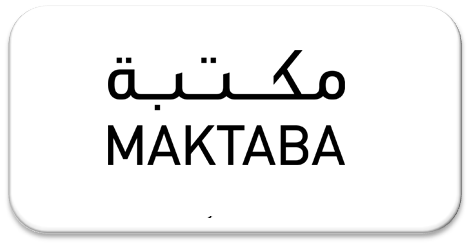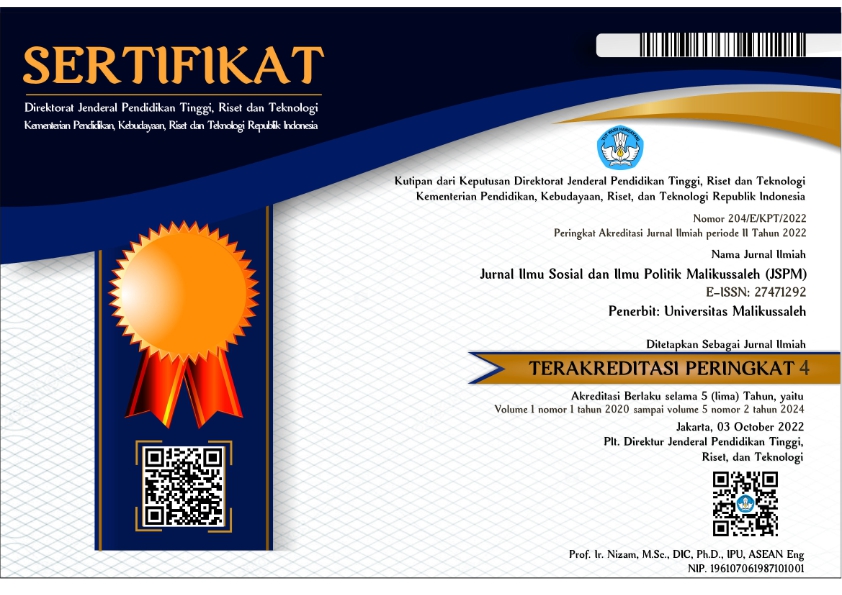Cultural Pluralist Perspective: Assessing the Functions of Ethno-Religious Politics in the Philippines
Abstract
Any general effort to account for the role of ethno-religiosity in the Philippines raises the question of the dominant role ethnoreligious politics has taken. Thus, the purpose of this article is to examine and analyze the role of ethnoreligious politics in the Philippines, using the Cultural Pluralist perspective. To this theory, the melting pot has never eradicated ethnoreligious politics in any given country. It is divided into three parts. Firstly, it deals with the economic function of ethnoreligious politics in the region. Secondly, it looks into the psychological role of ethnoreligious politics. Lastly, examines the civic role of ethnoreligious politics in the Philippines. As shown in this article, many people in the Philippines have been unified from time to time by ethnoreligious bonds and used politics to secure material goals, to satisfy their psychic needs, and on occasion, to bring about fundamental changes in their civic values. Therefore, it is clearly indicated that ethnoreligious politics serves as a tool in achieving their material desires, psychological needs and recognition of their civic values.
Abstrak
Setiap upaya umum dalam menjelaskan pengaruh etnoreligiusitas di Filipina menimbulkan pertanyaan mendasar tentang peran dominan yang diambil oleh politik etnoreligius. Dengan demikian, tujuan artikel ini adalah mengkaji dan menganalisis peran politik etnoreligius di Filipina dengan menggunakan perspektif Kultural Pluralis. Menurut teori ini, politik etnoreligius tidak dapat dihapuskan di negara mana pun. Hal ini berhubungan dengan tiga hal pokok. Pertama, berkaitan dengan fungsi ekonomi politik etnoreligius di wilayah tersebut. Kedua, melihat peran psikologis politik etnoreligius. Terakhir, mengkaji peran politik sipil etnoreligius di Filipina. Seperti yang ditunjukkan dalam artikel ini, banyak orang Filipina telah dipersatukan dari waktu ke waktu oleh ikatan etnoreligiusitas dan menggunakan politik etnoreligius untuk mengamankan tujuan material, memenuhi kebutuhan psikis, dan kadangkadang membawa perubahan mendasar dalam nilai-nilai kewarganegaraan mereka. Oleh karena itu, diindikasikan bahwa politik etnoreligius berfungsi sebagai alat untuk mencapai berbagai kepentingan dari para penganutnya.
Keywords
Full Text:
PDFReferences
Abubakar, C. A. (2017). Review of the Mindanao Peace Processes. Inter-Asia Cultural Studies, 5(3), 450-464.
Amin, K. (2019, March). Masyarakat Badawah dan Hadarah: Suatu Telaah Sosiologi Ibn Khaldun. In Proceeding: International Conference on Islamic Studies (ICIS) IAIN Ponorogo (pp. 235-245).
Buendia, R. G. (2004). The GRP-MILF Peace Talks: Quo Vadis?. In Southeast Asian Affairs 2004 (pp. 205-222). ISEAS Publishing.
Che Man, W. K. (1990). Muslim Separatism: The Moros of the Southern Philippines and the Malays of Southern Thailand. Oxford: Oxford University Press.
Kadil, B. J. (2002). History of the Moro and Indigenous Peoples in Minsupala. Mindanao: Mindanao State University.
Khaldun, I. (2015). The Muqaddimah: An Introduction to History-Abridged Edition. Princeton University Press.
Lantong, M. A. (2018). Islam and Colonialism: The Response of the Muslims in the Southern Philippines to Western Colonialism and Legacies. PEOPLE: International Journal of Social Sciences, 4(2), 547-567.
Majul, C. A. (1985). Contemporary Muslim Movement in the Philippines. Berkeley: Mizan Press.
Milligan, J. A. (2020). Islamic Identity, Postcoloniality, and Educational Policy: Schooling and Ethno-Religious Conflict in the Southern Philippines. Springer Nature.
Muslim, M. A. (1994). The Moro Armed Struggle in the Philippines: The Nonviolent Autonomy Alternative. Marawi City: Office of the President and College Affairs Mindanao State University.
Nurdin, A. (2020). Dialectics in Relationship between Religion and State: A Correlation of Religious Principles and Ideals of Law in Indonesia. Al-Bayyinah, 4(1), 105-117.
Omar, R., Islam, R., Aziz Yaacob, C. M., & Taya, S. L. (2020). Relevance of Fisher’s Model of Third Party Intervention: The Case of Malaysia’s Mediation to the Bangsamoro Conflicts. International Journal of Advanced Research in Engineering and Technology, 11(6).
Schock, K. (1996). A Conjunctural Model of Political Conflict: The Impact of Political Opportunities on the Relationship between Economic Inequality and Violent Political Conflict. Journal of Conflict Resolution, 40(1), 98-133.
Taya, S. L. (2009). Strategies and Tactics of the Moro Islamic Liberation Front (MILF) in the Southern Philippines. Sintok: UUM Press.
Taya, S. L. (2010). The Politicization of Ethnic Sentiments in the Southern Philippines: The Case of the Bangsamoro. Journal of Muslim Minority Affairs, 30(1), 19-34.
Zubiri, J. M. F. (28 February 2018). Sponsorship Speech on Senate Bill No. 1717 or the Bangsamoro Basic Law under Committee Report No. 255, delivered by Senator Juan Miguel F. Zubiri, chair of the Senate Sub-committee.
DOI: https://doi.org/10.29103/jspm.v2i2.4766
 Article Metrics
Article Metrics
 Abstract Views : 372 times
Abstract Views : 372 times
Refbacks
- There are currently no refbacks.
Copyright (c) 2021 Shamsuddin L Taya, Mocamad M Macasayon, Abdul M Lantong, Abubakar L Ali

This work is licensed under a Creative Commons Attribution-ShareAlike 4.0 International License.
INDEXED BY:




.png)









Redaksi Jurnal Ilmu Sosial dan Ilmu Politik Malikussaleh (JSPM): Gedung Fakultas Ilmu Sosial dan Ilmu Politik Universitas Malikussaleh. Kampus Bukit Indah Jln. Sumatera No.8, Kec. Muara Satu Kota Lhokseumawe, Prov. Aceh, Indonesia. eMail: jspm@unimal.ac.id

This work is licensed under a Creative Commons Attribution-NonCommercial-ShareAlike 4.0 International License



.png)



